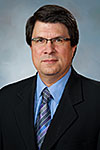Symposium to focus on Mexican American educational protests
Texas teachers and activists tried to get Mexican American studies on the curriculum for years, but when they finally succeeded and a textbook was created, there was an uproar about the content.
The textbook controversy is one of several educational issues that have affected Mexican American students. Those issues will be discussed Saturday at the 31st annual Martín De León Symposium on the Humanities at the University of Houston-Victoria. This year’s symposium theme is “En Lucha: Mexican Americans and Educational Protest.”
“We pick topics that are relevant and often controversial,” said Victor Manuel Mendoza Sr., De León Club president. “The purpose of the symposium always has been to intelligently discuss what is going on with Mexican Americans so people from different cultures can learn more about where we’ve been.”
The symposium will be from 10 a.m. to 12:30 p.m. in the Alcorn Auditorium inside UHV University West, 3007 N. Ben Wilson St. The event is free and open to the public.
This year’s speakers are:
- Jesus Jesse Esparza, assistant history professor at Texas Southern University
- Tony Diaz, writer, professor and director of intercultural initiatives at Lone Star College-North Harris in Houston
Esparza studies Latino history and the relationship between civil rights and education during the 20th century.
“His work focuses on how different groups have fought for measures of equality in education,” said Joseph Locke, a UHV assistant professor of history. “He’ll discuss the Chicano movement as it relates to education.”
Mendoza said it will be interesting to hear comparisons of school protests in the 1960s and 1970s with today’s issues. When Mendoza was attending the University of Texas at El Paso, students protested tuition hikes without representation on the UT Board of Regents. There were sit-ins and streaking on the UTEP campus, he said.
Diaz is a wide-ranging scholar and activist who hosts the “Nuestra Palabra” radio program in Houston. He’s been involved in many curriculum debates and is well known for his involvement in the banned book movement, where he earned the nickname “El Librotraficante” or “The Book Smuggler.” He gave a reading at UHV in 2009 for the UHV/American Book Review Reading Series.
“He’s done a lot of organizing around textbook controversies and curriculum issues to make sure Mexican Americans have fair representation,” Locke said.
A 2010 law passed by Arizona lawmakers banned a Mexican American studies program in the Tucson Unified School District. Two years later, ethnic studies books were removed from the Tucson schools.
In response, Diaz started the Librotraficante Caravan. Members of the nonprofit literary organization Nuestra Palabra: Latino Writers Having Their Say smuggled banned books back into Arizona and set up underground libraries across the southwest.
The law was challenged, and the case recently went to trial. Last month, a federal judge overturned the Arizona ban, saying it was motivated by racial discrimination and violated pupils’ constitutional rights.
In 2014, the Texas State Board of Education called for publishers to submit a Mexican American studies textbook for a special-topics social studies course.
“Mexican American Heritage” was the first textbook about the subject ever included for Texas public schools. But when the book first was released in 2016, it was widely criticized. A group of historians and educators came up with a 54-page report that outlined factual errors and important omissions in the textbook.
“Instead of a text that is respectful of Mexican American history, we have a book poorly written, racist and prepared by nonexperts,” Diaz said in a 2016 interview with the Houston Chronicle.
The State Board of Education voted in November to deny the adoption of a Mexican American studies textbook.
“This will be an especially interesting discussion given the events of the past year in Texas and Arizona,” said Jeffrey Di Leo, dean of the UHV School of Arts & Sciences. “The symposium is one of the longest-running events at UHV for good reason. We always have frank, open conversations, and I’m sure this year will be no different.”
The De León Symposium on the Humanities is a cooperative effort between the UHV School of Arts & Sciences and the De León Club. Named after Victoria founder Martín de León, the De León Club is a nonprofit organization dedicated to enhancing education through scholarships, participating in civic and community involvement, and promoting Hispanic Cultural pride in Victoria.
For more information about the symposium, contact Locke at 361-570-4292 or lockej@uhv.edu.
The University of Houston-Victoria, located in the heart of the Coastal Bend region since 1973 in Victoria, Texas, offers courses leading to more than 80 academic programs in the schools of Arts & Sciences; Business Administration; and Education, Health Professions & Human Development. UHV provides face-to-face classes at its Victoria campus, as well as an instructional site in Katy, Texas, and online classes that students can take from anywhere. UHV supports the American Association of State Colleges and Universities Opportunities for All initiative to increase awareness about state colleges and universities and the important role they have in providing a high-quality and accessible education to an increasingly diverse student population, as well as contributing to regional and state economic development.
Jeremy Shapiro
361-570-4350






